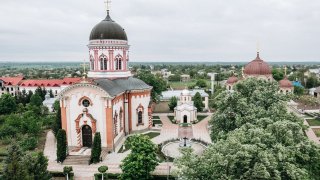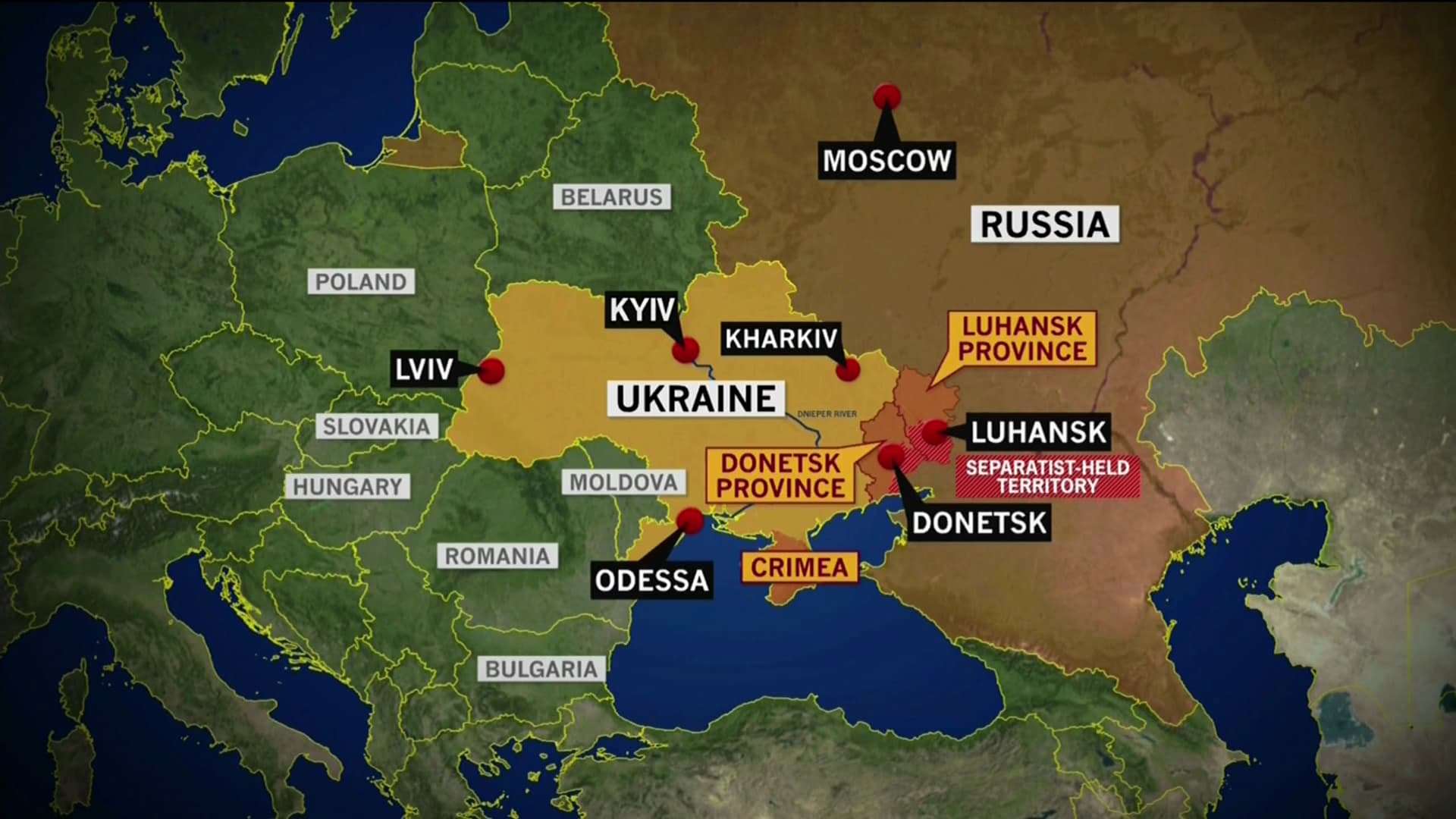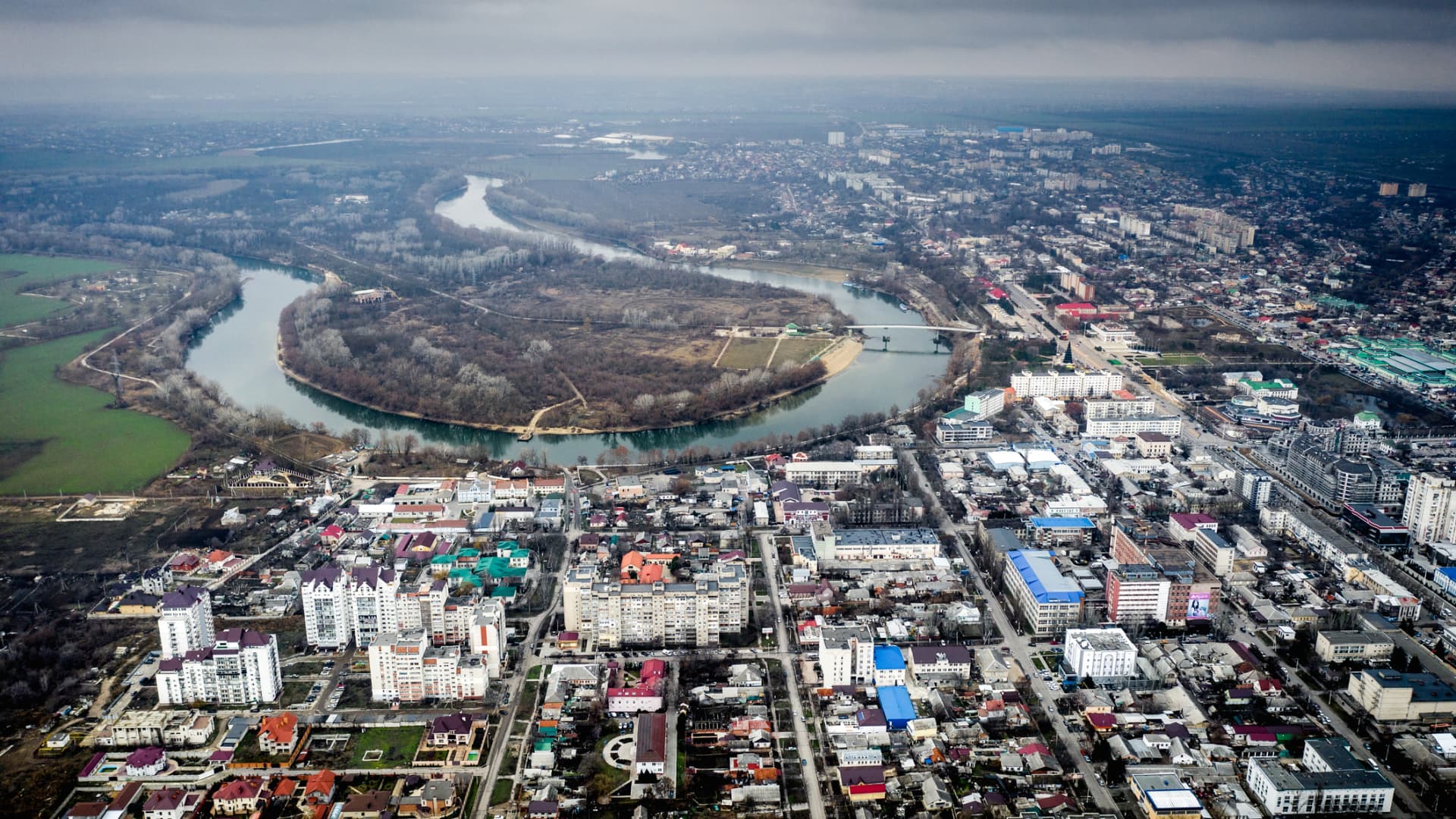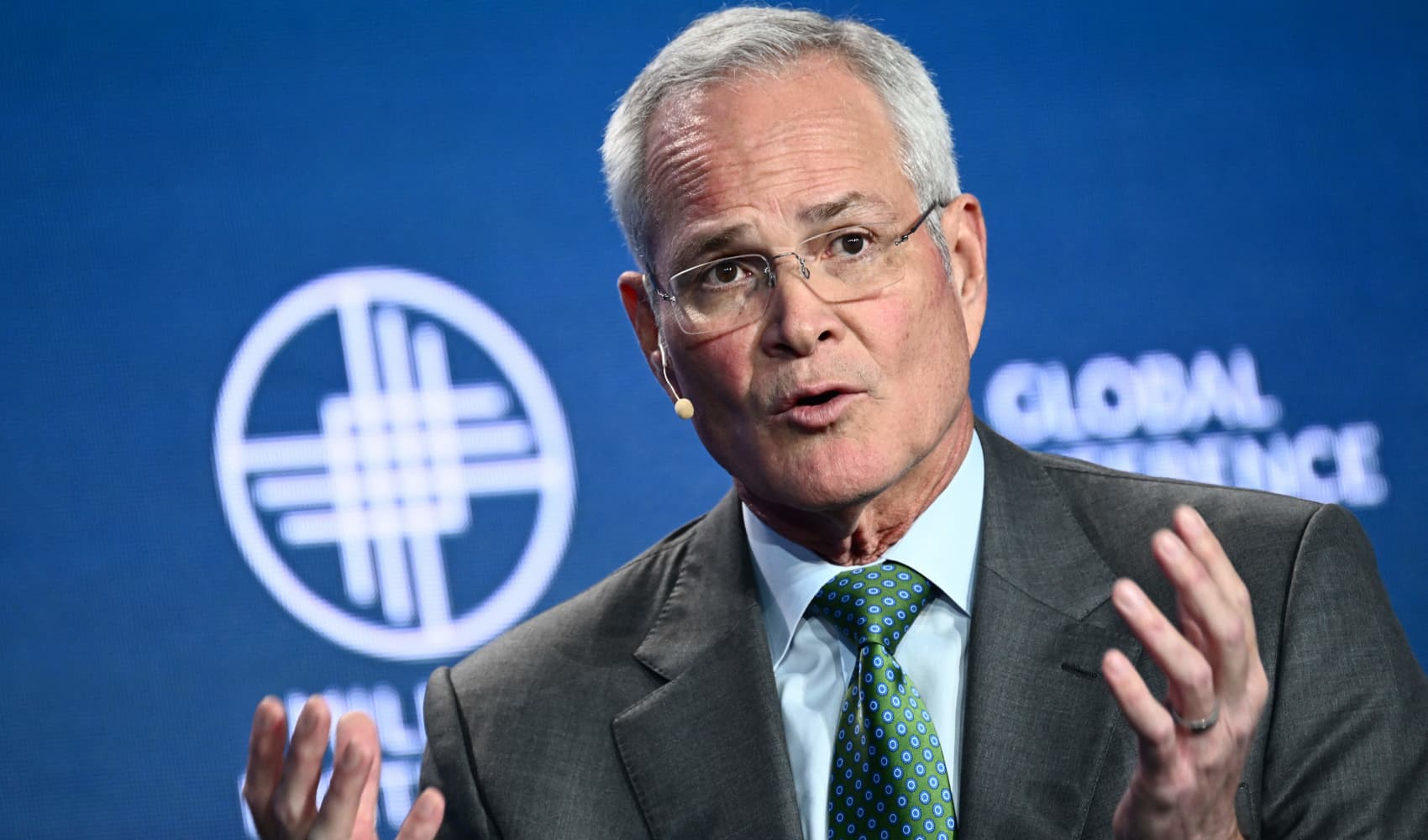
- As Russia faces staunch and seemingly unexpected resistance on the ground in Ukraine, analysts have warned that President Vladimir Putin may be considering his next target.
- Moldova, a landlocked Eastern European country situated on Ukraine's western border, is at risk, given its similarities with its neighbor.
- Like Ukraine, the former Soviet republic is not part of the European Union, nor is it a member of NATO — though it has ambitions to be both.
- It is also home to a sizeable pro-Russian separatist population based in the breakaway state of Transnistria.
Three weeks into the war in Ukraine, as Russia faces staunch and seemingly unexpected resistance on the ground, analysts have warned that President Vladimir Putin may be considering his next target: Moldova.
A landlocked Eastern European country situated on Ukraine's western border, Moldova shares several parallels with its neighbor that could see it become a staging post for the continued onslaught — or itself vulnerable to attack.
We're making it easier for you to find stories that matter with our new newsletter — The 4Front. Sign up here and get news that is important for you to your inbox.
"If the conflict escalates beyond Ukraine, Moldova is one of the places that ranks highest on the list," Adriano Bosoni, director of analysis at risk management firm Rane, told CNBC.
Moldova, like Ukraine, is not part of the European Union, nor is it a member of NATO — though it has ambitions to join both. But, like Ukraine, the former Soviet republic is home to a sizeable pro-Russian separatist population based primarily in the breakaway state of Transnistria on the Ukrainian border.
Governed by its own Kremlin-backed leader, Transnistria could present a strategic opportunity for Russia, which has already amassed some 1,500 troops in the area.
Money Report
Either Putin could recognize it as an independent state — as he did with Donetsk and Luhansk before launching a full-blown invasion of Ukraine — or it could become the focus point of a so-called false flag event, manufactured by Russia to justify an intervention.
"To me, it's super interesting that Russia has not yet recognized Transnistria as an independent republic the same way that it did with Luhansk and Donetsk," said Bosoni.

"If we saw Russia do that, it would be a serious indication that they are thinking of taking the conflict to Moldova."
The Russian Embassies in London and Washington as well as the Russian Foreign Ministry did not respond to CNBC's requests for comment.
A battleground with a back door to Ukraine
There are currently no definitive signs that Putin is planning such a strategy in Moldova, according to Bosoni, who described it as a "low probability, high risk situation." Precursors could include Russia denouncing the country's pro-European government, as well as broader destabilization efforts and campaigns to undermine authorities.
However, if Russia were to take that path, it would spell further hardship, not least for Moldova's 2.6 million residents and the 350,000 migrants from Ukraine who have fled there.
"They would be very weak. There would be little to no resistance," said Clinton Watts, a research fellow at the Foreign Policy Research Institute, of Moldova's resistance. The country — one of Europe's poorest on a GDP per capita basis — has much less military capability than Ukraine.
An invasion of Moldova could therefore open a back door into southwest Ukraine, said Watts, noting that Putin may be looking for an alternate game plan given Russia's as-yet failed efforts to encircle the capital Kyiv.

"They may hold out [on Kyiv] and try to circle in on Odesa first," he said, referring to the port city in south Ukraine. Russia may then try to seize the south of the country, having already closed in on Mykolaiv, 130 kilometers (81 miles) to Odesa's east.
"I think it's more likely that he wants to take southern Ukraine and reunite with it Transnistria, using that as a launching pad to take Moldova," Watts added.
Facing a precarious position
If that were to happen, Moldova could face a fate similar to that of Ukraine, locked in conflict with a global superpower while Western allies watch from the sidelines.
"In this region now there is no possibility for us to feel safe," the country's president, Maia Sandu, said earlier this month during a meeting with U.S. Secretary of State Antony Blinken.
At the time, Blinken pledged America's support for the small republic, which days earlier applied for fast-track EU membership. But without being an EU or NATO member, neither organization is likely to help substantially.
"Blinken says that the U.S. has Moldova's back. It does not mean that they would back it," said Bosoni.
Critically, that is what sets Moldova apart from other former Soviet nations, such as the Baltic states of Lithuania, Latvia and Estonia, all of which have expressed national security concerns amid heightened threats from their Russian neighbor. All three are members of the EU and NATO, suggesting allies would step in in the event of a Russian invasion.
And that leaves Moldova in a precarious position if Russia makes it its next target.
"It might not be in 48 hours. It might be 48 months from now," said Watts.
Correction: The Russian Embassy in Washington did not respond to a request for comment. An earlier version misstated the location.






